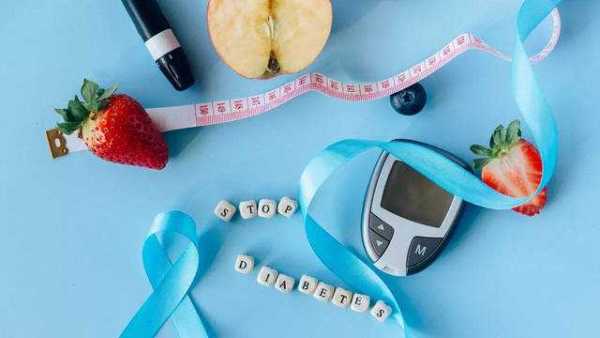
Diabetic management requires careful consideration of diet, especially about carbohydrates and the GI of food. Most diabetics are unsure of what exactly to consume to maintain their insulin levels. Though vegetables are considered healthier for most people, some vegetables can prove detrimental to the blood sugar levels of a diabetic due to their high concentration of carbohydrates and GI. Here’s a list of some vegetables that diabetics should avoid to an extent or absolutely, based on research and studies.
Potatoes
This vegetable falls into the category with a high glycaemic index, high starch content, and, accordingly, high peak blood glucose. One of the studies published in the journal Diabetes Care indicated that higher consumption of potatoes leads to a risk of developing type 2 diabetes since they get digested rapidly and turn into glucose. Not just that but another study published in the journal American Journal of Clinical Nutrition says that boiled or baked potatoes have a GI of 78-85, and this is placed at a high level with an effect that releases glucose very rapidly. This can be very challenging for diabetics in controlling blood sugar.
Sweet Corn
Another starchy vegetable is sweet corn, which contains moderate levels of carbohydrates. Although it does have fibre, its glycaemic index ranges from 52-60 and therefore may increase blood sugar to some extent. According to a paper published in Nutrition Journal, starchy vegetables like corn increase blood glucose more than non-starchy vegetables. Therefore, controlled portions are advised in diets for people with diabetes.
Beetroot
Beets, by nature, are quite rich in sugar compared to most vegetables. Although packed with different types of useful nutrients, their naturally occurring sugar content does influence blood sugar to fluctuate, especially when consumed in big amounts. As per research published in the Journal of Diabetes Research, beets contain antioxidants for the betterment of overall well-being, but the excessive amount of their natural sugars may have an impact on the regulation of blood sugar.
Peas
Although peas are rich in nutrients, they are starchy and contain carbohydrates. A cup of peas contains approximately 21 grams of carbohydrates. This causes spikes in blood sugar levels. According to Diabetic Medicine, starchy vegetables like peas have a greater effect on postprandial glucose levels than non-starchy vegetables. They are less ideal in the diets for diabetics.
Pumpkin
Pumpkin ranks with a high GI, approximately 75. It is said to contain natural sugars and starch, which can give an immediate boost to blood glucose. According to a report published in Clinical Nutrition, pumpkin has low calories and is rich in vitamins but can lead to quick digestion and a sudden increase in blood sugar since its GI score is high.
Parsnips
Parsnips are essentially carrots but contain a higher carbohydrate. The GI of these stands at about 97, and this can result in a tremendous increase in blood sugar if taken in big quantities. According to the Journal of Nutritional Biochemistry, foods that have a greater GI score, like parsnips, elevate postprandial blood glucose more than low-GI foods. This can be lethal for the management of blood sugar levels in diabetics.
Carrots (cooked)
Though raw carrots are usually safe due to their very low GI, cooked carrots have a higher GI that may cause high blood sugar levels. Cooking breaks down the fibre, which exposes sugars more quickly and encourages faster assimilation. Research in Food Chemistry says the GI of carrots can increase up to 85 once they have been cooked, and thus they happen to represent a medical concern for diabetes control when consumed in large quantities.
Balancing diet to control diabetes
Diabetes patients need to balance their diets and hence prefer vegetables, which are low in both carbohydrates and GI. Non-starchy vegetables, such as leafy greens, broccoli, cauliflower, and zucchini, can also be very good alternatives since they keep blood sugar stable.
While vegetables form a very vital constituent of a healthy diet, diabetics should be careful about how some raise their blood sugar levels. Dieticians have pointed out that the right portions and GI levels of vegetables can enable diabetics to maintain their varied, healthy diet with controlled blood sugar levels.
 Diabetic management requires careful consideration of diet, especially about carbohydrates and the GI of food. Most diabetics are unsure of what exactly to consume to maintain their insulin levels. Though vegetables are considered healthier for most people, some vegetables can prove detrimental to the blood sugar levels of a diabetic due to their high concentration of carbohydrates and GI. Here’s a list of some vegetables that diabetics should avoid to an extent or absolutely, based on research and studies.
Diabetic management requires careful consideration of diet, especially about carbohydrates and the GI of food. Most diabetics are unsure of what exactly to consume to maintain their insulin levels. Though vegetables are considered healthier for most people, some vegetables can prove detrimental to the blood sugar levels of a diabetic due to their high concentration of carbohydrates and GI. Here’s a list of some vegetables that diabetics should avoid to an extent or absolutely, based on research and studies.